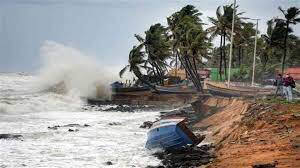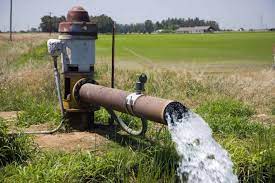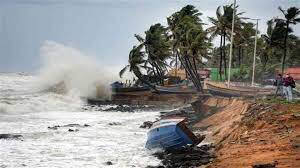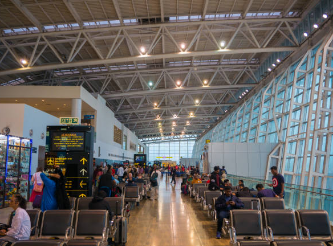
Climate change is taking a toll on Darjeeling tea gardens and workers. The gardens are facing a number of challenges. The weather in Darjeeling is becoming more erratic, with longer periods of drought and more extreme weather events. This is making it difficult to grow tea and damaging the tea bushes.

Cyclone Biparjoy made landfall in western India near the Pakistan border, resulting in at least two deaths and 22 injuries. While the storm weakened after hitting the Gujarat state coast, it continues to bring strong winds and heavy rains as it moves across the region. The cyclone has caused uprooted trees, damage to infrastructure, and disrupted electricity supply in some districts.

A recent study published in the journal Geophysical Research Letters reveals that extensive groundwater pumping has caused a significant shift in the Earth's rotation, with potential implications for the planet's climate. Led by geophysicist Ki-Weon Seo from Seoul National University, the research indicates that between 1993 and 2010 alone, the Earth tilted approximately 80 centimeters eastward due to the redistribution of large masses of water resulting from groundwater extraction.

Leaders worldwide will gather in Paris next week to initiate talks on a global financial pact aimed at providing access to funds for developing countries to address the climate crisis and promote environmentally sustainable and socially equitable economic growth. French President Emmanuel Macron will be joined by numerous world leaders, including EU representatives, to discuss climate finance, green growth, the debt crisis, and mobilizing private sector investments. However, British Prime Minister Rishi Sunak's attendance remains unconfirmed.

During a Youth 20 (Y20) talk on climate action, Erik Solheim, the Executive Director of the United Nations Environment Programme (UNEP), highlighted that India's heavy population makes it particularly vulnerable to climate change. He emphasized that the effects of climate change are noticeable worldwide, but India's unique nature and high population density contribute to its increased vulnerability compared to other regions. Solheim also pointed out that India is grappling with environmental challenges similar to those faced globally.

Cyclone Biparjoy, meaning "disaster" in Bengali, has weakened from a "very severe" to a "severe" category after making landfall in coastal areas of Gujarat, India. The cyclone has now moved from the sea to land and is centered around Sauarashtra-Kutch, with heavy rains expected in Rajasthan. Fortunately, there have been no reports of loss of human lives in the Kachchh district. The National Disaster Response Force (NDRF) is conducting rescue operations in Gujarat.

Cyclone Biparjoy, a formidable storm with winds of up to 150 kph (90 mph), is approaching densely populated regions in India and Pakistan, triggering widespread evacuations. With the potential for heavy rainfall, destructive winds, and coastal storm surges, authorities in both countries are taking swift action to protect millions of lives. Pakistan's Sindh province has already relocated approximately 60,000 individuals to temporary shelters, while India's Gujarat state has evacuated around 45,000 people from coastal areas

A new study conducted by scientists at Reading University in the UK highlights that flight turbulence has intensified due to climate change-induced warming. The research focused on clear-air turbulence, finding that the warming air caused by carbon emissions has resulted in bumpier flights worldwide, with severe turbulence in the North Atlantic region witnessing a staggering 55% increase since 1979.

The Chennai Climate Action Plan (CCAP), released on Tuesday, aims to make Chennai a climate-resilient city by 2050. The plan includes a number of measures to reduce greenhouse gas emissions, including:

In a bid to boost the renewable energy transition, the Chennai Airport has started running fully on renewable energy. The airport has achieved this milestone by using a combination of solar power, wind power, and energy efficiency measures.